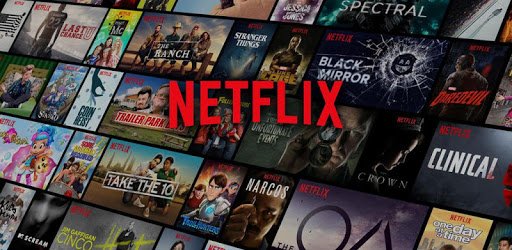Netflix's Euro Users Should Prepare for Price Hike, Todd Juenger Says
SVOD giant has already raised prices in UK, Germany, Japan and Argentina

The smarter way to stay on top of the multichannel video marketplace. Sign up below.
You are now subscribed
Your newsletter sign-up was successful
Bernstein media analyst Todd Juenger said Tuesday that Netflix could be readying widespread price hikes across Western Europe this year, in line with its earlier increases in the United Kingdom, Germany, Japan and Argentina.
Juenger tracked Netflix pricing across 50 countries and said the SVOD giant’s strategy is pretty clear -- increase pricing every two years; raise charges aggressively for its Premium package, moderately on its Standard plan and rarely on its Basic plan. He added that on average, the price increases are in the mid-single digits.
“After very little pricing activity in 2020, evidence is growing that we will see widespread pricing increases in 2021,” Juenger wrote in a note to clients, pointing to “significant” price increases in Q1 in the U.K., Germany (bringing pricing in line with Austria and Ireland); Japan and Argentina.
Netflix raised pricing for its Standard plan in Canada by about $1 per month and by $2 per month for its Premium plan in early October and three weeks later raised pricing for Standard and Premium plans in the U.S. by similar levels. Juenger estimates that Austria, Ireland and Germany could prove to be similarly “leading indicators” for price hikes in Europe, “perhaps a more gradual roll-out across the Continent rather than one uniform, lockstep pricing change.”
In the United Kingdom, Netflix raised prices for its Standard plan by $1 per month (11%) and by $2 per month for its Premium plan (17%) in January. That same month German customers saw pricing for the Standard plan rise 8% and 13% for the Premium plan. In Japan, Netflix said in February that it would raise prices for the Basic and Standard plans by 13% each. The biggest percentage hikes were in Argentina, where Netflix said in Q1 that it would raise pricing for all tiers -- Basic (40%), Standard (44%) and Premium (49%). Juenger added that the increases in Argentina were likely due to high inflation rates in Latin America and efforts to account for the decline in exchange rates compared to the U.S. dollar over the past year. He said that Netflix rates in Argentina are roughly 60% lower than in the U.S., in U.S. currency.
Netflix has been under some pressure recently as some analysts have pointed out that the service has lost as much as 31% of its global market share (despite gaining 40 million customers) given the increase in competition from new streaming services like Disney Plus, HBO Max, Paramount Plus and Peacock.
The smarter way to stay on top of the multichannel video marketplace. Sign up below.
On Tuesday, Netflix stock was up as much as 2.5% ($13.49 each) to $554.16 each in early trading, a day after Evercore ISI Group internet analyst Mark Mahaney assumed coverage of the company, upgrading his rating on Netflix stock to “outperform” and raising his price target on the stock to $665 per share. Mahaney was encouraged by Netflix’s large cash position, which enables it to invest in more content, which in turn leads to more subscribers. Adding to that strength is Netflix’s massive platform coupled with a global recommendation algorithm that the analyst wrote has the power to transform good content into global sensations. As an example he pointed to shows like The Queen’s Gambit, which he wrote on its own made “chess cool again.”
“Simply put, a dollar spent at Netflix arguably creates more marketing power than any other platform, generating greater leverage and potentially more subs,” Mahaney continued.
Mike Farrell is senior content producer, finance for Multichannel News/B+C, covering finance, operations and M&A at cable operators and networks across the industry. He joined Multichannel News in September 1998 and has written about major deals and top players in the business ever since. He also writes the On The Money blog, offering deeper dives into a wide variety of topics including, retransmission consent, regional sports networks,and streaming video. In 2015 he won the Jesse H. Neal Award for Best Profile, an in-depth look at the Syfy Network’s Sharknado franchise and its impact on the industry.

